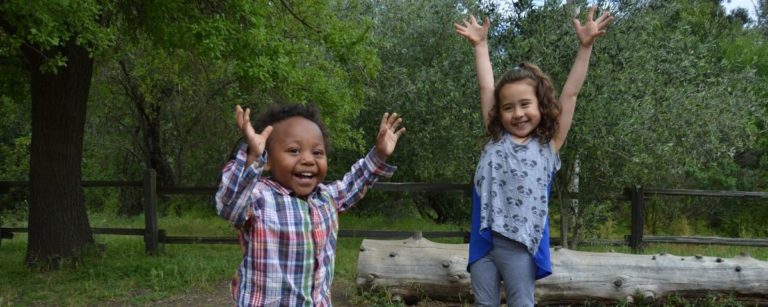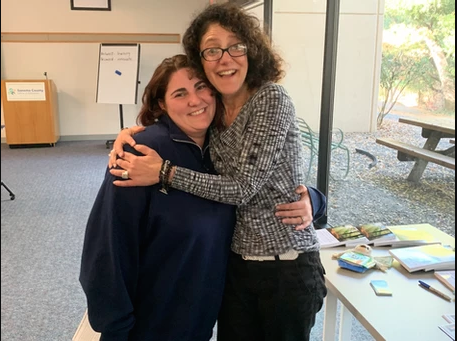Is The Time Now? What To Consider Before Accepting a New Placement
When the call comes looking for a home for a child, my heart always wants to say yes.
Children of all ages in foster care deserve our special care and attention to help restore and support their physical, mental and emotional well-being. Some children are subjected to neglect, and others to physical and emotional abuse with significant trauma. They all need loving and patient caregivers who are trained to recognize and respond to their needs. Newborns and infants are not necessarily victims of outright physical abuse; rather, they may be at risk from their birth mom’s poor health due to substance abuse, domestic violence, homelessness, etc. These babies often share common characteristics and may be born with conditions requiring ongoing medical care.
Being a neonatal nurse, I am inclined to love and care for medically fragile infants.
- In this two-part blog series, I will discuss first how caring for special needs babies impacts our lives and families.
- In part two (next month), I will discuss specific conditions we commonly see in newborns who are removed from their birth mother’s care and the challenges they present to caregivers. I hope to instill a great confidence and deeper understanding of what to anticipate when caring for medically fragile infants.
All placements have an impact on resource parents and those that they love: spouses, birth children, siblings, grandparents, friends and co-workers.
We may be well prepared and thorough adopting a “case management” approach where we organize schedules of everyone’s activities and our normal household routines. Yet, when adding in a new baby with unfamiliar or unpredictable caregiving requirements, additional medical and therapy appointments, social worker visits, birth family visits — and fatigue from sleepless nights — it can become an overwhelming scenario.
You may be excited and “all in” for new challenges, but what about the rest of your gang?
Maybe not so much, especially if additional demands on your time and energy mean you won’t be available when they need you. It’s very important to “read the room” and make a realistic appraisal of your family’s strengths, challenges and resources before accepting the placement. It’s not necessary to overwhelm family members with lots of what ifs, but it’s also not OK to charge ahead and pretend that life and routines as they know it will not change.
As hard as it may be to say no, sometimes it’s not in the baby’s best interest or best for a busy family to accept the placement.
Consideration needs to be given to upcoming family vacations or out-of-town holiday gatherings. Finding childcare or respite, especially for a newborn or a medically fragile baby, can be complicated and time-consuming. Most licensed childcare facilities won’t take newborns under six weeks of age, until they’ve had their first immunizations. With current Covid precautions, it’s likely that the baby’s pediatrician or social workers will veto plans for a trip involving flights with a medically fragile infant. I’ve found it best to hold off taking a placement and instead make myself available for respite (which is planned and predictable) when I know we have upcoming travel or other high priority events.
Although it’s best to stay home with newborns in the first few weeks of life, it is not always possible.
Do your best to delegate non-essential errands to others and limit outings with a newborn to necessary appointments only. Most newborns have several medical appointments during the first few weeks of life, and some babies discharged into foster care are preterm (born less than 37 weeks) and may require weekly weight checks to observe their progress. Those with ongoing medical conditions may have referrals to specialists, increasing the number and frequency of medical appointments. Some of these medical appointments are for specialists with limited openings, so flexibility is key. Specialty clinic appointments are usually scheduled weeks or months in advance and are difficult to reschedule.
Along with busy calendars come Bay Area transportation challenges, and it’s important to anticipate and plan for appointment or traffic delays while also keeping in mind other family members’ schedules and needs. Have Plan A (and best, a Plan B) to kick in when life gets in the way. Accept offers for help, and if they don’t come in then ask! You may get lots of offers from those eager to come cuddle a sweet newborn, but you may need to ask for help picking up your 8 year old from soccer practice when you’re running late at the pediatrician’s office. So make your specific needs known (meal prep and delivery, laundry help, play dates for older kids, or a mother’s helper visit) and then do what you can to reciprocate when your life settles down.
Sometimes family or friends aren’t available for backup, so it’s important to know about other resources to manage everyone’s care safely and effectively.
It may be hard and awkward to ask, but reaching out to other resource families through Help One Child or your county’s foster parent association before you need help is a great way to get acquainted with other families that take special needs babies. Relationships build on mutual experience and a willingness to support each other increases your ability to parent well. My most reliable resources and meaningful friendships are among three or four longtime foster moms; we understand the unique and rewarding challenges caregivers face.
Taking an infant into your home can fill the space and your heart with love (and some stress too!),so carefully consider all the ramifications of the placement before accepting. Do you have all the support in place and the space within your busy schedule? It’s a difficult task to balance the demands of life with the demands of our hearts.
Check back next month to learn more about the specifics of caring for high-need infants.
Sandi Orlando has been a foster Mother since 1999 to medically fragile infants, a natural calling for her as an RN in the NICU at Valley Medical Center in San Jose for 23 years. Her nursing experience prompted them to take medically fragile newborns and infant placements. She also taught classes for Santa Clara County foster parents on newborn assessment and caring for medically fragile babies, with a special emphasis on developmentally supportive care. She has been part of the Help One Child Network for many years as a Board Member and currently sits on the Education committee.









